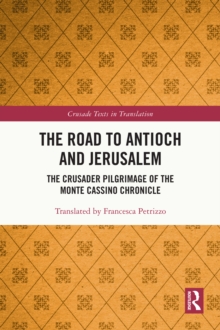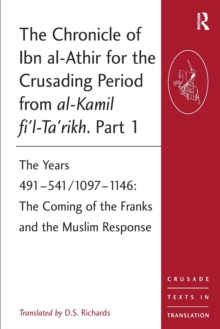
The Old French Chronicle of Morea : An Account of Frankish Greece after the Fourth Crusade Hardback
Edited by Anne Van Arsdall, Helen Moody
Part of the Crusade Texts in Translation series
Hardback
Description
Numerous Byzantine and Western sources describing the events of the Fourth Crusade have now been translated into English.
However, the same is not true for material on Frankish Greece, despite this region’s importance to late medieval crusading.
The Chronicle of Morea is the key source for the history of the Frankish states established in Greece after the conquest of Constantinople in 1204 and their relations with the reviving Byzantine Empire during the 13th century.
It is also an important source for the growth of the Venetian maritime empire.
Most of the action centers on the Peloponnesus, then called Achaia or Morea, where crusaders William of Champlitte and Geoffrey of Villehardouin (nephew of the famous chronicler) established a principality and the Villehardouins a dynasty. Preserved in a unique fourteenth-century manuscript, the Old French version of the Chronicle of Morea is a contemporary account of Frankish feudal life transposed onto foreign soil.
It describes clashes, conquests, and ransoms between the Franks and Byzantines, as well as their alliances and arranged marriages.
A rich source, the Chronicle of Morea brims with anecdotes giving insight into the operation of feudal justice, the role of noble women in feudal society, the practice of chivalry, and the conduct of warfare.
Versions of the Chronicle exist in Aragonese, Greek, and Italian, as well as in Old French.
However, this is the first translation into English or any other modern language of the Old French text, thus opening its content to a wider audience.
Information
-
Available to Order - This title is available to order, with delivery expected within 2 weeks
- Format:Hardback
- Pages:290 pages
- Publisher:Taylor & Francis Ltd
- Publication Date:28/12/2015
- Category:
- ISBN:9780754631521
Information
-
Available to Order - This title is available to order, with delivery expected within 2 weeks
- Format:Hardback
- Pages:290 pages
- Publisher:Taylor & Francis Ltd
- Publication Date:28/12/2015
- Category:
- ISBN:9780754631521










